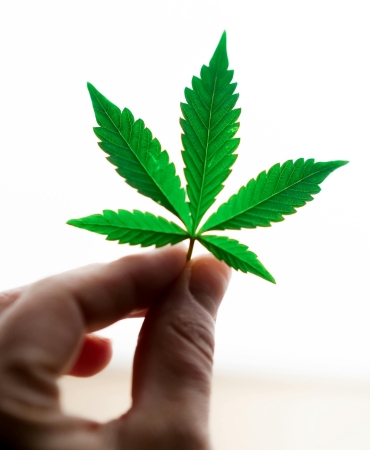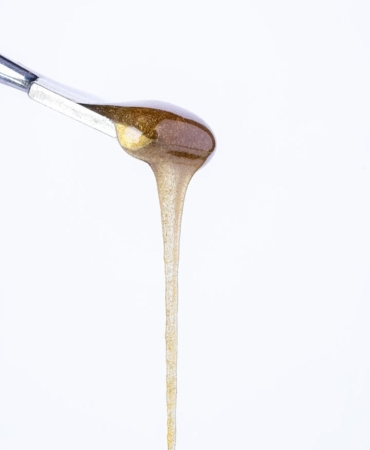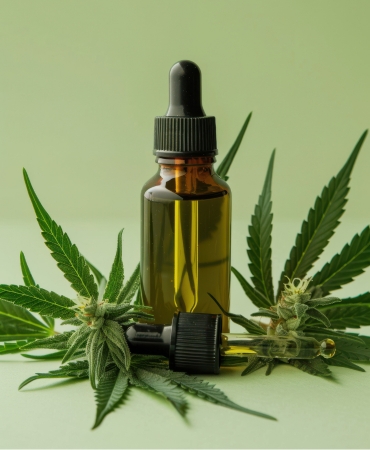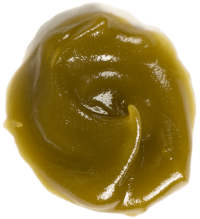

What Is Hash Oil? Benefits, Risks & How to Use It Safely
Ever wondered what hash oil is all about? It’s strong, tricky, and not for everyone. Let’s break it down so you know how to use it safely!
Hash oil, also known as cannabis oil or honey oil, is a potent extract derived from cannabis plants. Unlike traditional marijuana products, hash oil can contain THC concentrations ranging from 40% to 80%, offering a much stronger effect. This high potency has contributed to its growing popularity among users seeking more intense experiences.
However, it's essential to be aware of the associated risks, especially when considering methods like butane extraction, which can lead to severe burns if not handled properly. Understanding both the benefits and potential dangers of hash oil is crucial for anyone considering its use.
What Is Hash Oil?
Hash oil, also known as hashish oil or cannabis oil, is a highly concentrated extract made from cannabis plant material. It contains a potent form of THC oil, the psychoactive compound responsible for the effects of cannabis. The extraction process involves solvent extraction, where solvents like butane honey oil or liquid butane separate the cannabinoids from the plant material.
Unlike traditional marijuana, hash oil produced through bho production or solvent extraction has a much higher THC concentration, which enhances its effects. However, residual solvent and other chemicals may remain if the manufacturing process is not conducted properly, posing health risks.
How Does Hash Oil Differ From Other Cannabis Concentrates?
Hash oil is often confused with other cannabis products, but there are key differences:
-
Extraction Process: Unlike marijuana extracts like kief or rosin, hash oil requires solvent extraction, which increases its potency.
-
Consistency & Form: Hash oil is a dark brown, thick liquid, whereas other cannabis concentrates like wax or shatter have a solid form.
-
Consumption Methods: While hash oil is commonly used in e-cigarettes, water pipes, or dabbing hash oil, other concentrates are often smoked or vaped in different ways.
-
Potency: Hash oil has a higher THC concentration, making it more intense compared to traditional cannabis plant material.
Additionally, some types of hash oil, like butane hash oil BHO, undergo a process that may leave behind hydrocarbon burns or residual solvent, increasing safety concerns.
A Brief History of Marijuana Concentrates and Their Rise in Popularity
The use of hash oil production dates back centuries, but modern methods have refined its potency and appeal.
Early Use:
-
Ancient civilizations extracted oils from cannabis plants for medical marijuana and religious rituals.
-
Hash oil was used in tinctures and early psychoactive drugs for therapeutic purposes.
Modern Advancements:
-
The 20th century saw innovations in solvent extraction, making it easier to produce hashish oil with higher THC concentration.
-
In recent years, bho production and butane extraction became popular but led to incidents like flash burns and cases at the Colorado Hospital Burn Center due to unsafe practices.
Current Trends:
-
With marijuana liberalization, there’s growing acceptance of cannabis ingestion through hash oil.
-
Many users seek pain relief, leading to more research into medical marijuana and other methods of consumption.
-
Despite its popularity, concerns over drug abuse, other oils, and disease control remain, making regulation crucial.
How Is Hash Oil Made?
Hash oil is made by extracting THC content and other cannabinoids from cannabis plant matter using various methods. The process varies depending on whether it’s done professionally or through amateur production techniques. The quality, purity, and safety of the final product depend on the extraction method used.
What Are the Common Extraction Methods?
Different methods are used to extract hash oil, each with varying levels of efficiency and safety.
-
Solvent-Based Extraction:
-
Uses chemical solvents like butane, CO2, or ethanol to separate cannabinoids.
-
Produces high concentration hash oil but requires proper handling to remove residual solvent.
-
Poorly done extractions can result in contamination with other chemicals.
-
Solventless Extraction:
-
Uses pressure, heat, or water without chemicals.
-
Methods include creating hash oil with heat presses, dry sifting, or ice water extraction.
-
Preferred for producing cannabis products without the risk of solvent contamination.
-
CO2 Extraction:
-
A professional method using controlled substances like carbon dioxide under pressure.
-
Produces a cleaner, purer extract with precise THC levels.
Each method requires proper equipment and knowledge to ensure a safe manufacturing process.
Understanding Amateur Production Techniques vs. Professional Extraction
1.Amateur Production Techniques
Many individuals attempt to extract THC content at home using makeshift methods, but this can be extremely dangerous.
-
Use of Butane Extraction:
-
Highly flammable, leading to explosions and BHO burns.
-
Can leave residual solvent in the final product, making it unsafe.
-
Risk of inhaling vapors produced during extraction.
-
Improvised Equipment:
-
Some use coffee filters, parchment paper, or DIY setups that aren’t designed for proper extraction.
-
Lack of safety measures increases the chance of accidents, including static electricity igniting flammable solvents.
2.Professional Extraction
Licensed producers follow strict safety regulations to ensure high-quality cannabis products.
-
Advanced Equipment:
-
Uses oil rigs and specialized lab equipment for precise extraction.
-
Ensures the removal of other chemicals and contaminants.
-
Regulated THC Levels:
-
Professionals can control THC extracts for consistency and safety.
-
Lab testing ensures accurate potency and removes harmful residues.
While marijuana users may attempt DIY extractions, national institute reports warn about the dangers of BHO burns, altered perception, and unsafe drug use. Proper manufacturing processes and lab testing ensure safer products with fewer risks.
Is Butane Hash Oil the Same as Hash Oil?
Hash oil and butane hash oil (BHO) are related but not the same. While both are cannabis extracts, the difference lies in how they are made and their effects. Understanding these differences can help users make informed choices.
Key Differences Between Hash Oil and Butane Hash Oil:
-
Extraction Method:
-
Hash oil can be made using various extraction techniques, including solventless methods.
-
Butane hash oil is specifically extracted using butane as a solvent, which can leave chemical residues if not processed properly.
-
Purity and Safety:
-
Some hash oils are made using CO2 extraction or ethanol, resulting in a cleaner product.
-
BHO extraction requires careful purging to remove butane traces, which, if left behind, can be harmful when inhaled.
-
Potency and Use:
-
Both types are potent, but BHO is often stronger because it retains high levels of cannabinoids and terpenes.
-
Hash oil is commonly used in tinctures, edibles, and vaporizers, while butane hash oil is often dabbed or smoked.
Why Does It Matter?
-
Legal Considerations: Some areas have strict regulations on butane hash oil due to safety concerns.
-
Health Risks: Poorly made BHO can contain contaminants, affecting the lungs and overall health.
-
User Preference: People looking for a cleaner product may opt for hash oil made without butane.
While butane hash oil is a type of hash oil, not all hash oils are made with butane. Choosing the right one depends on safety, purity, and personal preference.
What Are the Benefits of Hash Oil?
Hash oil has gained popularity because of its potency, convenience, and versatility. Unlike traditional cannabis products, it delivers a concentrated experience, making it a preferred choice for many users. Below are some key benefits of hash oil.
1. High Potency
Hash oil is known for its strong cannabinoid content, allowing users to feel the effects with smaller doses.
Because it contains concentrated THC and other cannabinoids, it provides a more intense experience compared to dried cannabis.
Many people prefer hash oil because they can use less product while still achieving the desired effects.
2. Fast-Acting Effects
Hash oil is quickly absorbed, especially when inhaled or vaporized.
Unlike edibles, which take longer to kick in, inhaling hash oil can produce noticeable effects within minutes.
This makes it a good option for those who want immediate relief or a quick response to symptoms like stress or discomfort.
3. Long-Lasting Results
Compared to smoking dried cannabis, hash oil offers longer-lasting effects, especially when used in tinctures or edibles.
The concentrated nature of hash oil allows cannabinoids to stay active in the body for an extended period.
This means users may need fewer doses throughout the day, making it a convenient option.
4. Versatile Consumption Options
Hash oil can be used in different ways, giving users multiple options to fit their preferences.
-
Some popular ways to consume hash oil include:
-
Vaporizing – A clean and efficient way to inhale cannabinoids.
-
Edibles – Mixing hash oil into food allows for slower absorption with long-lasting effects.
-
Sublingual Tinctures – Placing a few drops under the tongue allows for quick absorption without inhalation.
-
This flexibility makes it appealing for both recreational and medical users.
5. Stronger Flavor and Aroma
Hash oil contains natural terpenes, which contribute to its rich aroma and taste.
The extraction process preserves these flavor compounds, making hash oil a more flavorful experience compared to traditional smoking.
Some people enjoy the stronger scent and taste, as it enhances the overall cannabis experience.
6. Discreet Usage
Unlike smoking cannabis, hash oil can be used discreetly without producing strong odors.
Vaporizers and tinctures allow users to consume cannabis without drawing attention.
This makes it a good option for people who want to enjoy cannabis without the lingering smell of smoke.
7. Reduced Smoke and Toxins
Smoking dried cannabis involves burning plant material, which can release unwanted byproducts.
Hash oil offers an alternative that produces less smoke and fewer toxins, especially when vaporized.
This makes it a cleaner option for those who are concerned about lung irritation from traditional smoking.
Hash oil provides a concentrated and efficient way to experience cannabis. Its high potency, versatility, and reduced smoke exposure make it an attractive choice for both new and experienced users. However, proper usage and responsible consumption are key to getting the best results.
What Are the Risks of Hash Oil?
While hash oil offers potency and versatility, it also comes with potential risks. Understanding these risks can help users make informed decisions and avoid harmful effects. Below are some key concerns associated with hash oil consumption.
The Health Effects of Consuming Hash Oil
Hash oil is highly concentrated, which means its effects can be stronger than traditional cannabis. While some people tolerate it well, others may experience unwanted side effects, especially with high doses.
-
Increased THC Sensitivity
-
Since hash oil contains higher levels of THC content, some users may feel dizziness, paranoia, or anxiety.
-
Those who are sensitive to THC extracts may have stronger reactions compared to smoking dried cannabis.
-
Respiratory Concerns
-
Vaporizing or dabbing hash oil at high temperatures can expose users to vapors produced that may irritate the lungs.
-
Some oils contain other chemicals that may not be fully removed during extraction, leading to inhalation risks.
-
Altered Perception and Cognitive Effects
-
Strong doses can cause altered perception, making tasks like driving or operating machinery dangerous.
-
Long-term heavy use may impact memory and focus, especially in younger users.
Risks of Low-Quality or Contaminated Hash Oil
Not all hash oil is made the same way. Low-quality or improperly processed oils may contain harmful substances.
-
Residual Solvents and Contaminants
-
Poorly processed hash oil can contain leftover solvents from extraction, such as butane, propane, or ethanol.
-
If not purged correctly, these solvents remain in the oil and may cause health problems when inhaled.
-
Unregulated or Illicit Products
-
Some low-quality hash oils on the market come from unlicensed producers who do not follow proper manufacturing processes.
-
These oils may contain other oils mixed in to increase quantity but lower safety and potency.
-
Adulteration With Harmful Additives
-
Some products are diluted with controlled substances or cutting agents that make them dangerous.
-
Inhaling contaminated oil increases the risk of lung damage and other health issues.
The Dangers of Synthetic Cannabinoids vs. Natural Extracts
Synthetic cannabinoids are man-made chemicals that attempt to mimic the effects of natural THC. However, they are not the same as natural cannabis extracts, and their effects can be unpredictable.
-
Stronger and Unpredictable Effects
-
Synthetic cannabinoids bind more aggressively to receptors in the brain, leading to effects much stronger than natural THC.
-
This can cause severe anxiety, hallucinations, or paranoia, making them riskier than natural hash oil.
-
Higher Risk of Adverse Reactions
-
Unlike natural THC extracts, synthetic cannabinoids have been linked to hospitalizations and life-threatening symptoms.
-
Some users experience severe burns or breathing issues due to inhaling these altered compounds.
-
Difficult to Regulate
-
Since synthetic cannabinoids are constantly modified, regulators struggle to track and control their production.
-
Many products labeled as "legal alternatives" may contain unlisted chemicals that pose serious health risks.
Hash oil can be safe when properly made and used responsibly, but it is important to be aware of potential risks.
Choosing high-quality, lab-tested products and avoiding synthetic alternatives is the best way to reduce harm and enjoy hash oil safely.
How to Use Hash Oil Safely
Using hash oil responsibly is important to avoid health risks and ensure a safe experience.
The right consumption method, proper storage, and awareness of potential hazards can make a big difference in safety. Below are key guidelines to follow.
Best Consumption Methods for Responsible Cannabis Use
Choosing the right way to use hash oil can help control its effects and reduce risks.
-
Vaporizing
-
One of the cleanest ways to use hash oil.
-
Uses controlled heat instead of burning, which reduces exposure to harmful byproducts.
-
Sublingual Tinctures
-
A few drops of hash oil under the tongue allow for fast absorption without inhaling anything.
-
Provides precise dosing, making it easier to control effects.
-
Edibles
-
Hash oil can be infused into food or drinks for longer-lasting effects.
-
Requires careful dosing since edibles take longer to kick in, and taking too much can lead to intense effects.
-
Dabbing (For Experienced Users Only)
-
Involves typically heated hash oil on a rig to produce a vapor.
-
Produces strong effects quickly, so it’s not ideal for beginners.
Each method has different effects and risks, so choosing based on experience level and personal preference is key.
Avoiding Risks With E-Cigarettes and Vaping
Many people use e-cigarettes or vape pens to consume hash oil, but not all devices are safe.
-
Choose Quality Cartridges
-
Poorly made cartridges may contain harmful additives or other chemicals that can irritate the lungs.
-
Stick to lab-tested products to ensure purity.
-
Be Aware of Heating Levels
-
Overheating can create vapors produced that contain unwanted byproducts.
-
Adjust the temperature setting to a moderate level for a smoother experience.
-
Watch for Leaks and Battery Issues
-
Faulty cartridges can leak oil, leading to waste and potential exposure to chemicals.
-
Low-quality batteries may overheat, increasing risks.
Using tested products and adjusting vaping habits can help reduce potential harm.
Storage and Handling Tips for Potential Harm Mitigation
Proper storage of hash oil helps maintain its quality and prevent accidents.
-
Store in a Cool, Dark Place
-
Light and heat can degrade THC, reducing potency over time.
-
Keep it in an airtight container away from direct sunlight.
-
Keep Out of Reach of Children and Pets
-
Hash oil can be dangerous if ingested accidentally.
-
Store it in a locked cabinet or high shelf to prevent unintended consumption.
-
Use the Right Containers
-
Avoid using parchment paper or plastic, as they may interact with the oil.
-
Glass containers are ideal for long-term storage.
-
Check for Expiry or Contamination
-
Over time, hash oil can develop an off smell or change in consistency.
-
If it appears cloudy or smells unusual, it may be contaminated and should not be used.
Following these storage tips helps preserve quality and prevent accidental ingestion.
Safety Measures for Preventing Butane Hash Oil Burns
Butane hash oil burns can happen when butane extraction is done unsafely or when dabbing is not handled correctly.
-
Avoid DIY Butane Extraction
-
Making hash oil with butane at home is highly dangerous and can cause explosions.
-
Butane is highly flammable and can ignite from static electricity or an open flame.
-
Use Safe Dab Rigs and Equipment
-
When dabbing, always use heat-resistant glass or metal tools.
-
Cheap materials may crack under heat, leading to accidents or burns.
-
Handle Butane Hash Oil With Care
-
Do not apply direct flame to hash oil, as it can vaporize too quickly and cause a flare-up.
-
If using a rig, ensure proper temperature control to avoid overheating.
-
Keep Fire Hazards Away
-
Avoid using hash oil near open flames, lighters, or sparks.
-
Never attempt butane extraction indoors—it increases the risk of flash burns.
-
Know First Aid for Burns
-
If a burn occurs, cool the area under running water and avoid popping blisters.
-
Severe burns may require immediate medical attention.
By avoiding at-home butane extractions and following proper handling techniques, users can reduce the risk of serious injuries.
Using hash oil responsibly requires choosing the right consumption method, handling it properly, and avoiding dangerous practices like unsafe butane extractions.
Being informed about safe storage, proper vaping habits, and fire hazards can help users enjoy hash oil without unnecessary risks.
Is Hash Oil Legal? The Impact of Marijuana Liberalization
The legal status of hash oil varies depending on location. While some countries and states allow it under regulated markets, others still classify it as illegal.
The changing laws around marijuana liberalization have influenced how hash oil is produced, sold, and consumed.
How Marijuana Liberalization Affects Availability and Regulation
As more places legalize cannabis, the rules surrounding hash oil availability and safety have evolved.
-
Regulated Markets
-
Legalization has led to licensed dispensaries selling tested and approved hash oil.
-
Consumers now have access to safer products without the risk of harmful contaminants.
-
Stronger Quality Control
-
Legal markets require testing for purity, potency, and residual solvents.
-
This ensures that hash oil is free from harmful additives and unapproved chemicals.
-
Restricted Sales in Some Regions
-
In areas where cannabis remains illegal, black-market products continue to circulate.
-
These unregulated oils may contain unlisted substances, increasing health risks.
Even in legal markets, rules about THC content, labeling, and purchase limits differ. Understanding local laws helps users stay compliant.
What a National Survey Says About Hash Oil Use Trends
Studies tracking cannabis use show how hash oil consumption has changed over time.
-
Increased Use Among Adults
-
A national survey found that more people are switching to hash oil due to its potency and discreet usage.
-
Younger adults are particularly drawn to vaping and dabbing as alternatives to smoking.
-
Health and Safety Concerns
-
Reports highlight concerns over high concentration THC extracts, which may lead to overuse.
-
The survey also noted rising cases of improper usage leading to negative experiences.
-
Changing Public Perception
-
More people view hash oil as a valid option for both recreational and medical use.
-
However, concerns about synthetic versions and unregulated products remain.
The national survey findings suggest that while legalization has improved access, there is still a need for consumer education and responsible use.
Conclusion
Hash oil is a potent and versatile cannabis extract, but using it safely requires the right knowledge. Understanding its benefits, risks, and legal status can help you make informed choices.
Whether you're using it for personal enjoyment or medical reasons, knowing the best consumption methods, proper storage, and legal regulations is key.
Not all hash oil is the same, so choosing high-quality, tested products matters. Laws are changing, but it's important to stay updated and responsible. If you're considering trying hash oil, start slow, use it wisely, and always prioritize safety over potency.





























